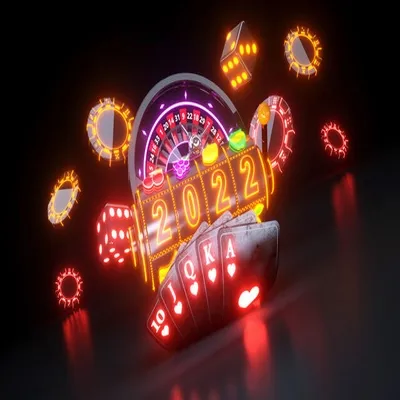bebedouro são paulo
$1168
bebedouro são pauloAnother important factor is RTP (Return to Player), which indicates the percentage that a slot machine returns to the player over time. For example, if a machine’s RTP is 95%, this means that in the long run, the machine will return 95% of the player’s bet. Machines with higher RTPs are often preferred because they offer a higher chance of winning. However, it is also important to note that slot machines are completely based on luck and it is impossible to predict the exact outcome of each spin.
Finally, a very important factor when participating in betting is that players need to know how to manage their finances. Betting can be very attractive but can easily lead to financial risks if there is no clear plan. Players should set limits on the amount of bets and the time of participation, and always play responsibly. Betting is not only a game of entertainment but also a challenge that requires players to have patience and smart strategies to win.
Product description

bebedouro são pauloIn addition, "e-wallet" is a keyword closely related to money transactions in online betting. Many betting platforms today allow players to use e-wallets such as Momo, ZaloPay, or other online payment methods to deposit and withdraw money. Using keywords related to these payment services will help players find fast and secure transaction methods.
Gambling, or betting, is an activity that humans have been involved in for thousands of years. From simple games to grand casinos and modern online sports betting, this industry has gone through a long journey of development. The following article will review important milestones in the history of the betting industry. Betting is not a new concept, but has existed since ancient civilizations. Archaeological evidence shows that, as early as the Babylonian and Egyptian periods, people participated in games of chance, often in forms of betting involving cards or dice games. Betting in Greece and Rome: Ancient Greek and Roman civilizations organized horse races and sports competitions, where people could bet on the outcome of events. Chariot races in Rome and arena sports were among the earliest forms of betting known to mankind. These games were not only part of the entertainment culture but were also associated with religious beliefs and rituals. Dice and card games were also used as a form of betting from this period, although there was no formal system or rules. Cards in particular appeared in China around the 9th century and gradually spread to other regions such as India and Europe. Betting flourished in Europe in the 17th and 18th centuries, when casino games began to become more popular. The first casino opened in Venice, Italy in 1638. This was the first place with formal betting organization and procedures. The first casinos mainly served the nobility and the wealthy, and were only open on special occasions such as festivals. The first casino in Venice (1638): The first casino opened in Venice, Italy in 1638. This was the first place with formal betting organization and procedures. The first casinos catered mainly to the nobility and the wealthy, and were only open on special occasions such as festivals. Horse racing betting: Horse racing was one of the first popular forms of sports betting and began to become part of the betting culture in Europe in the 18th century. The first horse races were held in England, where a strong horse racing industry developed, with famous races such as The Derby. Gambling and sports competitions: In the 19th century, gambling games at casinos and sports competitions such as football and horse racing began to become popular events that people bet on. In the 20th century, the betting industry continued to thrive, especially after countries began to legalize and regulate the industry. The city of Las Vegas in the United States emerged as the "gambling capital" of the world in the 1930s when Nevada legalized casino games. Las Vegas casinos have become an icon of the gambling industry, attracting tourists and gamblers from all over the world. Famous venues such as the Bellagio, Caesars Palace and The Venetian have become symbols of luxury and the gambler's lifestyle. Sports betting officially flourished in the 1940s and 1950s, especially in Las Vegas casinos. Sports such as football, basketball, and horse racing began to attract the attention of bettors. By the late 20th century, sports betting had gone beyond entertainment and had become a professional industry with major organizations and tournaments, such as the Super Bowl (USA) and the Premier League (UK).

Slot machines are one of the most popular games in casinos, especially online casinos. Players simply place their bets and spin the wheel to see the results.
In addition, reading the paytable and side bets is also an important factor. Each casino will have different side bets, which can help you increase your profits if you know how to choose the right bet at the right time. However, you need to understand these bets and only choose when you think it is reasonable. Side bets can bring attractive payouts but often come with a higher level of risk.











